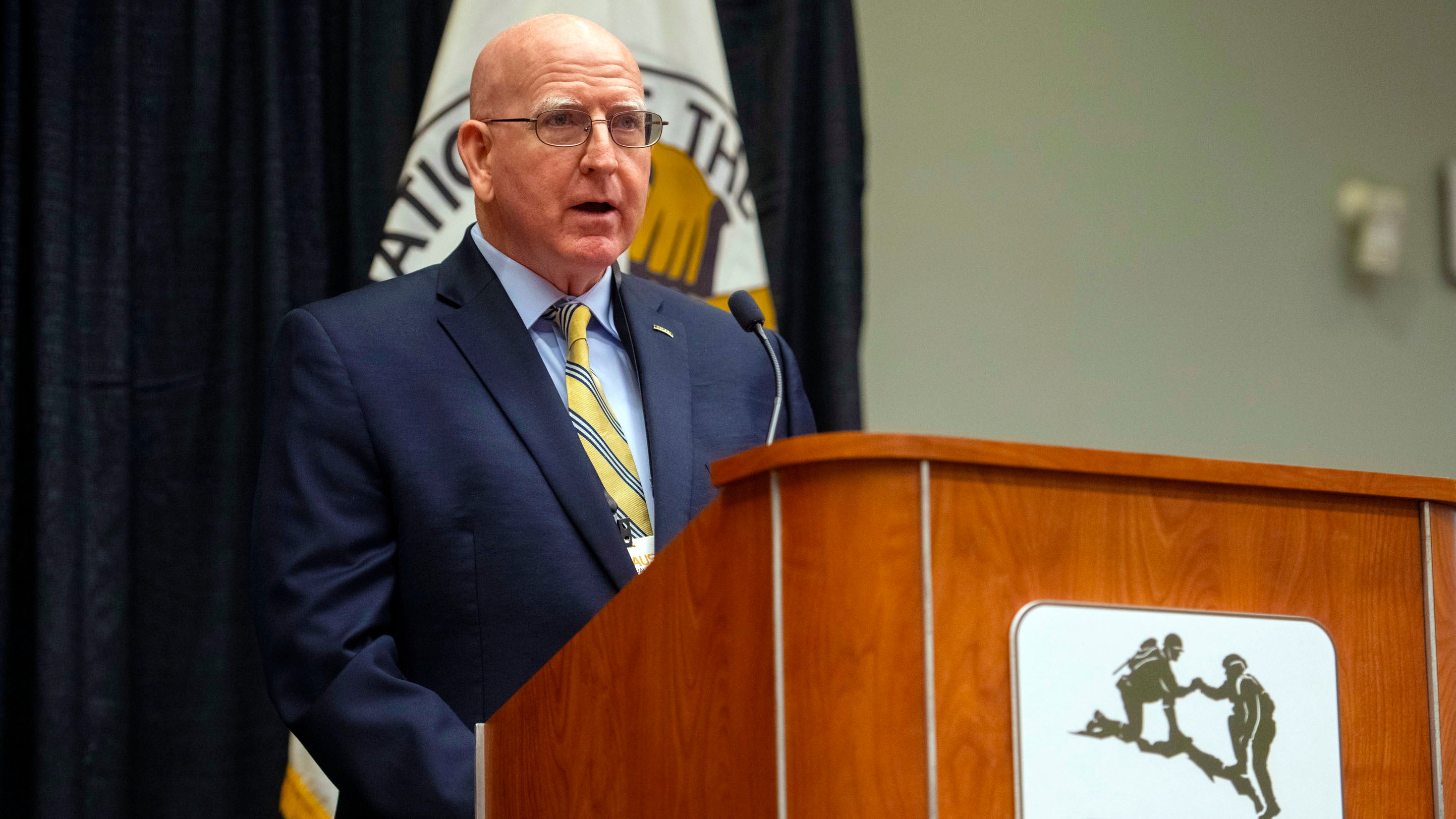Retired 2-Star Discusses Mental Health, Seeking Help
Retired 2-Star Discusses Mental Health, Seeking Help

Retired Maj. Gen. Gregg Martin served in the Army for 36 years and deployed to combat multiple times, all while battling undiagnosed bipolar disorder.
“Bipolar disorder … is not due to a lack of willpower or character, so don't blame the afflicted [individual]. Bipolar disorder can strike anyone,” Martin said Nov. 2 during an Association of the U.S. Army Noon Report webinar. “My life mission now … is sharing my bipolar story to help stop the stigma, promote recovery and save lives.”
A graduate of the U.S. Military Academy at West Point, New York, Martin commanded several engineer units and served as commandant of the Army Engineer School and Fort Leonard Wood, Missouri. He details his experiences of serving as a senior leader with undiagnosed mental illness in his book, Bipolar General: My Forever War with Mental Illness.
Bipolar disorder is characterized by extreme mood swings that include emotional highs, referred to as mania or hypomania, and lows, or depression, according to the Mayo Clinic.
Though Martin experienced mild mania that went undetected at West Point, Army Ranger School and throughout most of his Army career, he struggled with his mental health after his first years as a general officer.
“For 12 years … I cycled into higher highs and lower lows, along with psychosis. In 2014, I shot into full-blown mania,” Martin said. “I was disruptive, bizarre, over the top, frightening and out of control.”
Things came to a head when Martin was forced to resign from serving as president of the National Defense University in 2014, ending his Army career.
It wasn’t until 12 years after the onset of Martin’s mental struggles, which were triggered when he led soldiers into combat during the invasion of Iraq in 2003, that he was diagnosed with bipolar disorder and psychosis.
After treatment and community support, Martin recovered. “It took a team to lift me up, [my] wife, family, friends, medical professionals, that gave me the hope and knowledge that I could and would recover,” Martin said. “When I was in bipolar hell, I believed I would never recover.”
Martin must remain vigilant to maintain his mental health, but he now considers himself a “bipolar survivor and thriver.”
“My life is happy, healthy, purposeful, my hyperthymic personality is back, though less intense,” he said. “There’s hope recovery is possible from all mental illnesses, including bipolar. I am living proof.”
Martin encouraged Army leaders to talk about mental health with their soldiers.
“I would recommend that the Army leadership read the book, talk about it [with their soldiers] and … encourage people all through the ranks … to read [the book], talk about it and gain a greater understanding, not just about bipolar disorder, but about mental illness [and] about mental health conditions,” he said.

